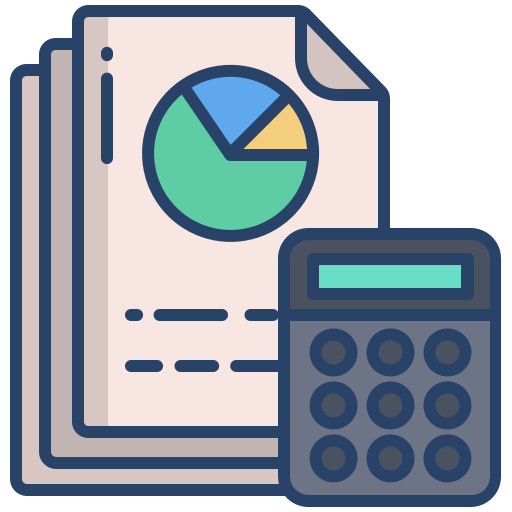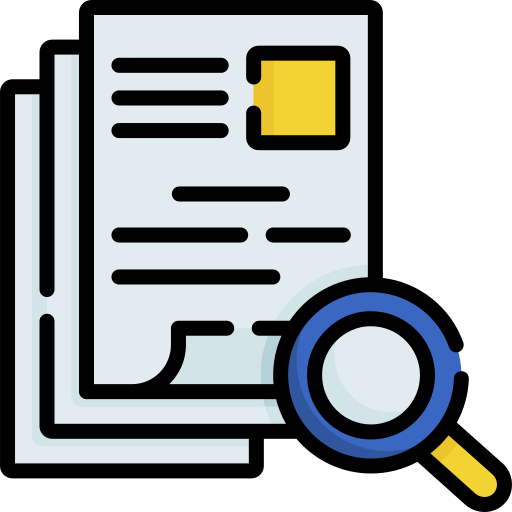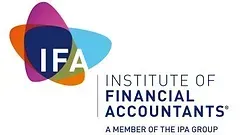Independent Examination
What is a Charity Independent Examination
A charity independent examination is an impartial review of a charity’s financial statements by an independent examiner, typically an accountant or other qualified professional. This process is required for charities that do not need a full audit but still meet certain financial thresholds. The examination ensures that the charity's financial statements are prepared in accordance with relevant accounting standards and that there are no significant issues or irregularities.
Key Points of an Independent Examination:
An independent examination is generally required for charities with an annual income between £25,000 and £1 million. Charities with income over £1 million must undergo a full audit.
Purpose: The main goal is to provide assurance to stakeholders (such as donors, trustees, and regulators) that the charity’s financial records are accurate and comply with legal requirements. It is not as in-depth as an audit, but it is more thorough than a basic review.
Examination Process:
- The examiner reviews the charity’s accounts, financial statements, and supporting documents.
- They check for consistency and ensure that the financial information complies with Charity SORP (Statement of Recommended Practice).
- They assess whether the accounts give a true and fair view of the charity’s financial position.
Independent Examiner's Report:
After completing the examination, the independent examiner provides a written report, which includes:
- A statement on whether the financial statements appear to be properly prepared and comply with applicable law.
- Any concerns or issues identified during the examination.
- An assessment of whether the charity’s accounts are consistent with the books and records maintained by the charity.
Difference from an Audit:
An independent examination is less detailed than an audit. While audits involve a more comprehensive investigation, an examination is generally limited to a review of the financial statements, focusing on whether they are accurate and in line with regulatory requirements.
When is it Required?
A charity must have an independent examination if:
- Its annual income exceeds £25,000 but is under £1 million.
- It does not require a full audit (i.e., if it is not a large charity as defined by the Charity Commission).
An independent examination helps ensure transparency, accountability, and proper governance within a charity, building trust with donors, beneficiaries, and regulators.
Can We opt for an Independent Examination if our turnover is less than £25,000
Yes, a charity can opt for a voluntary independent examination, even if it is not legally required to do so based on its income level. While charities with income above £25,000 (but below £1 million) are required to have an independent examination by law, smaller charities with income under £25,000 are not obligated to undergo one. However, some charities may choose to undergo an independent examination voluntarily.
Benefits of a Voluntary Independent Examination:
- Increased Transparency and Accountability
Voluntarily opting for an independent examination helps demonstrate to donors, stakeholders, and the public that the charity is committed to good governance and transparency. It shows that the charity is taking steps to ensure that its financial activities are being conducted properly. - Building Trust with Donors and Funders
Donors and funding bodies may have more confidence in the charity's financial integrity if they know the charity's accounts have been independently examined. It can increase their trust and willingness to contribute, as they will know the charity is accountable for its financial management. - Ensuring Compliance with Legal and Regulatory Requirements
Even if not legally required, an independent examination ensures that the charity's financial statements comply with the Charity SORP (Statement of Recommended Practice) and other relevant legal frameworks. This helps to avoid potential regulatory issues. - Identifying Financial Weaknesses or Issues
The independent examiner may identify areas for improvement in the charity’s financial processes, controls, or record-keeping. This can help the charity strengthen its financial management and internal controls, reducing the risk of errors, fraud, or inefficiencies. - Professional Validation
Having a qualified independent examiner review and report on your financial statements adds a level of professional validation to your charity's financial activities. It assures both internal and external parties that the charity's financial records are being managed responsibly. - Improving Governance
Regular independent examinations can encourage better governance practices within the charity. Trustees and senior managers may gain useful insights from the examiner's recommendations, helping them make more informed decisions about the charity's financial operations. - Preparation for Future Growth
If the charity is planning to grow or increase its income, a voluntary independent examination can prepare it for future regulatory requirements. It helps develop sound financial practices that will ease the transition to full audits as the charity expands.
By opting for a voluntary independent examination, even smaller charities can demonstrate a commitment to financial transparency and best practices, which can be invaluable in fostering trust with donors, partners, and regulatory bodies.
How Our Independent Examination Process Work
In four seamless and environmentally friendly stages

AML Checks and Engagement Letter
By law, we are obligated to perform AML checks on all trustees. We will request proof of identity and address from each trustee of the charity. Upon receiving these documents, we will provide an engagement letter that outlines the scope of our services, fees, and responsibilities.

Preparation of Accounts and carry out the examination
Upon receiving your draft accounts or trial balance, we will prepare the financial statements in compliance with the Charities SORP (Statement of Recommended Practice) and carry out our examination

Draft & Approval
Once the accounts and independent examination are complete, we will send the accounts along with our independent examination report in PDF format for the chair to review, approve, and sign the balance sheet.

Submission to the Charity Commission
Once we receive the signed copy of the accounts, we will sign the independent examiner’s report and send all the required documents to the charity, who will then submit them to the Charity Commission.
Expert Guidance
Navigating the requirements for confirmation statement filing can be complex. Our experienced team ensures that your statements are accurately prepared and submitted on time.
Compliance Assurance
Stay in good standing with Companies House by entrusting us with your confirmation statement filing. We keep track of deadlines and ensure that your statements are submitted promptly.
Tailored Approach
We understand that every business is unique. Our confirmation statement services are customized to align with your specific business structure and reporting needs.
Peace of Mind
With our professionals handling your confirmation statement filing, you can have peace of mind knowing that your compliance matters are in capable hands.

Charity Compliance Services
As accountants specialising in the charity sector, we offer comprehensive charity compliance services to ensure that your charity operates in line with legal requirements and regulatory standards. We understand that the charity sector faces unique challenges, and our expert services are designed to help your organisation remain compliant with the ever-evolving laws and regulations, giving you the confidence to focus on achieving your charitable mission.
Get In Touch with Us
Sterling Gate Accountants is regulated by the Institute of Financial Accountants (IFA)
Registration number: 276666

MENU
STAY CONNECTED
Join our newsletter and find out more
Contact Us
We will get back to you as soon as possible
Please try again later
ICO Reg No. ZB862286 IFA Reg No. 276666
© 2025 Sterling Gate Accountants. All Rights Reserved

